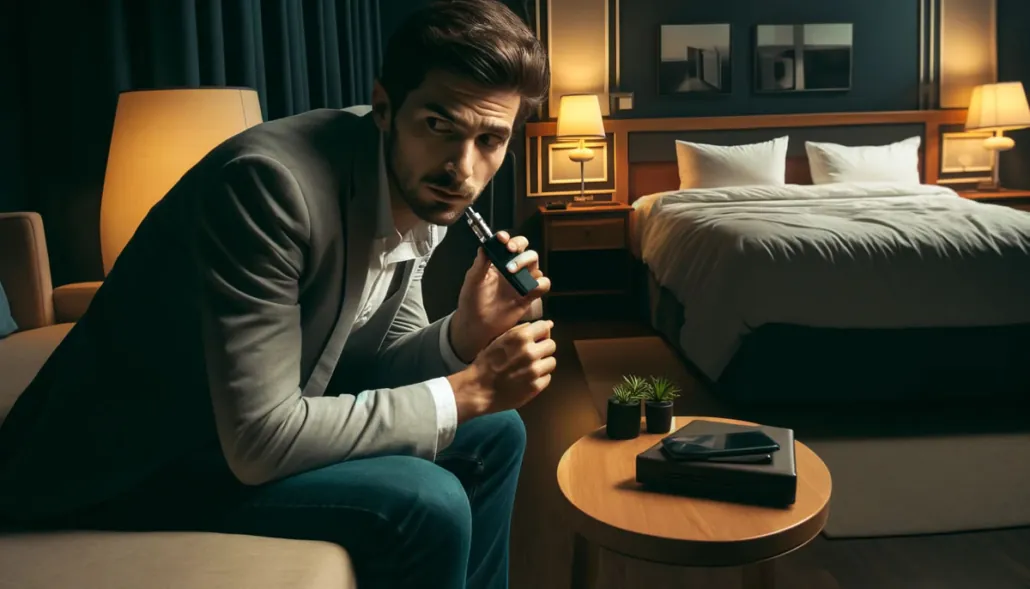Can Hotel Detect Vape: What You Need to Know Before You Stay
Hotels across the United States are increasingly implementing measures to detect and prevent vaping within their premises. As vaping becomes more prevalent, especially among younger demographics, hotel management is taking steps to maintain a smoke-free environment and ensure the safety of all guests. Understanding how hotels detect vaping can help travelers make informed decisions and avoid potential issues during their stay.
How Hotels Detect Vaping
One of the primary methods hotels use to detect vaping is through the installation of advanced air quality sensors. These devices are designed to identify the presence of aerosol particles that are released when someone vapes. Unlike traditional cigarette smoke, which leaves behind a distinct odor and visible residue, vape particles are often smaller and more difficult to detect. However, modern sensors can pick up on these minute particles, triggering an alert for staff to investigate further.
Another common method involves the use of surveillance cameras in public areas and near smoking zones. While most hotels do not have cameras in guest rooms, they may monitor common spaces such as lobbies, elevators, and hallways. If a guest is seen vaping in these areas, hotel staff can intervene and address the situation accordingly.
Additionally, some hotels employ trained personnel who conduct regular inspections of guest rooms. These inspections can be done with the consent of the guest or as part of a routine check for cleanliness and compliance with hotel policies. During these checks, staff may look for signs of vaping, such as the presence of vaporizers, empty cartridges, or unusual odors.
Consequences of Vaping in a Hotel

Vaping in a hotel room, even if it’s not explicitly prohibited, can lead to several consequences. Many hotels have strict no-smoking policies that extend to vaping, as it is considered a form of smoking. Violating these policies can result in fines, additional cleaning charges, or even being asked to leave the hotel. Some establishments may also report the incident to local authorities, depending on the severity of the violation.
In addition to financial penalties, guests who vape in non-designated areas may face reputational damage. Hotels often keep records of incidents, and repeated violations can affect a guest’s ability to book future stays. This is particularly true for frequent travelers who rely on loyalty programs or prefer specific accommodations.
Tips for Travelers Who Vape

For travelers who vape, it’s essential to familiarize themselves with the hotel’s policies before arriving. Most hotels list their smoking and vaping rules on their websites or during the booking process. Reading these guidelines carefully can help avoid unintentional violations.
If a hotel allows vaping in designated areas, guests should make sure to use those spaces and follow any additional instructions provided by the staff. It’s also advisable to carry vape devices discreetly and avoid using them in public areas where they might be noticed by other guests or hotel employees.
Guests who are unsure about the rules can contact the hotel directly before their arrival to clarify any uncertainties. Open communication can help prevent misunderstandings and ensure a smoother stay for everyone involved.
The Future of Vaping Detection in Hotels

As technology continues to advance, the methods used by hotels to detect vaping are likely to become more sophisticated. Some establishments are already experimenting with AI-powered systems that can analyze data from sensors and cameras to identify vaping activity in real-time. These innovations could lead to more accurate and efficient enforcement of hotel policies.
Moreover, the growing awareness of the health risks associated with vaping may influence future regulations. Local governments and hotel associations may implement stricter guidelines to protect both guests and staff from the potential harms of secondhand vapor. This could result in more comprehensive policies that go beyond just detecting vaping to actively discouraging its use within hotel premises.



